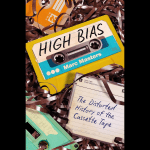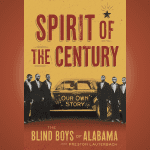Music Books That Make a Difference
A few weeks ago, I responded in this column to the absurdity of Billboard’s list of its “100 Greatest Books of All Time.”
That phrase makes for a nice headline, but like all lists, it is subjective and reflects the biases of its makers. However, many makers of lists — I’ll soon be publishing in this space my own list of this year’s best music books — at least provide criteria that they’ve used as guides to their selections. The creators of the Billboard list provided none and so, in addition to the huge gaps in the list of books dealing with various genres of music, they included very recent titles — Carly Simon’s Boys in the Trees and Rod Stewart’s Rod are but two examples — which, somehow inexplicably, are supposed to merit the superlative “greatest.”
As I wrote in my earlier column, perhaps a more useful criterion for including books on a “greatest books of all-time list” would be the number of times we return to a title, or titles, for instruction and delight. We return to some books because they’re so well-written and elegant that we love the writer’s way with words and sentences. We return to those books as models, perhaps, for our own writing.
We return to other titles not because they’re necessarily well-written or elegant but because they changed the way we look at an artist or a type of music, or the history of music. We dip back into those as reminders of how they became benchmarks in our thinking about music.
We return to still others because they challenge our assumptions about a musical style or an artist or a period in music. Those are the books on our shelves that we’re not likely to donate or sell when we cull our collections. We keep them on the shelves to pull down when we’re writing, or to comfort us when we’re feeling low and want to be reminded how great writing makes us feel, or to re-read in search of that nugget about an artist or a song.
In my column about Billboard‘s list, I invited readers to share the books that functioned in these ways for them, and I am pleased to share those lists in this week’s column. The comments started some conversations and got all of us to consider which books we can’t do without. Interestingly enough, though not especially surprising, there are very few titles that are universal on everyone’s list.
Kim Ruehl, No Depression’s editor, declared, “Two that I’ll never get rid of: Woody Guthrie: A Life, by Joe Klein, and How Can I Keep from Singing?: The Ballad of Pete Seeger, by David King Dunaway. Guy & Candie Carawan’s Ain’t You Got a Right to the Tree of Life should be in there too.”
Bluest Yodel commented: “I’m a big fan of Ralph Stanley’s autobiography [Man of Constant Sorrow], because it’s ace.”
Terry Roland responded early and then added a few more titles in a later comment, leaving this list:
Woody Guthrie: A Life, Joe Klein
Hellfire, Nick Tosches
Will You Miss Me When I’m Gone? The Carter Family & Their Legacy in American Music
The Nearest Far Away Place: Brian Wilson, the Beach Boys and the Southern California Experience, Timothy White
The Land Where the Blues Began, Alan Lomax
Chronicles Volume 1, Bob Dylan
Bound for Glory, Woody Guthrie
Invisible Republic-Bob Dylan’s Basement Tapes, Greil Marcus
Steve Goodman; Facing the Music, Clay Eals
Last Train to Memphis/Careless Love, Peter Guralnick
Songwriters on Songwriting, Paul Zollo
Then added, “And can Tamara Saviano’s epic Guy Clark bio-of-love, Without Getting Killed or Caught be far behind? Just released this week, it is one of the first books to parallel one artist’s growth and development with the rises of Americana weaving his influence into the mix.”
Patti Meredith suggests to “please, please add Long Gone Daddies, by David Wesley Williams. David is from Memphis and writes with a Memphis sound that is completely and totally unique.”
David Wesley Williams says, “So many great ones, but I’ll start with Hellfire, Nick Tosches’ Jerry Lee Lewis book, which includes my favorite sentence of all time: ‘Fame lifted her skirt for the final wild son.’”
Jim Hunter writes that Hellfire is a great book [and] Mark Oliver Everett’s book Things the Grandchildren Should Know is terrific.
Dave Crotts points out that “there was an excellent long-running thread on the pre-FreshGrass version of ND started on October 5, 2013 by Joshua Sanders. I googled it and came up with this link. I had a long posting on this thread on October 11, a short post on that date, and one on Dec. 11 of that year. A lot of folks made excellent suggestions and this is one of favorite ‘old ND’ threads.”
William D. Deveney comments that he leafed through the Billboard 100 and may have missed it “but I think one of the books that should have been on the list was that first — coffee table version of — the Rolling Stone magazine encylopedia of rock and roll (not sure if that’s the right title). The format and pictures were great. I don’t know that it’s really deserving of being in the Top 100, but I always had a soft spot for Tom Perrotta’s The Wishbones. I also would have included the Rock Snob’s dictionary, as perhaps a nod to irony (or at least self-awareness).”
sdflash2006 asks: “Has anybody considered that there is not one book on this list about the influence of Latino music on United States culture? I am not a Latino, but am always mystified about why both the black and Anglo music communities continue to ignore the wave that is happening around us. Radio stations, many playing the kind of music celebrated on this website, are changing formats every year and targeting their playlist to a Hispanic audience. Latinos are the fastest growing demographic and largest ethnic grouping in the US, but we just ignore the whole thing in our nice little bubble. Even more remarkable when it happens in States where Hispanics will become the majority in a few decades. Just because much of the music is sung in Spanish? Please don’t tell me that Tejano, Conjunto, and other Mexican music genres specifically have not have a significant influence on much of the Americana music coming out of the border states. I would add Latin Tinge: The Impact of Latin Music on the United States to this book list as a way to add some balance.”
Lyndon Bolton nominated these titles from his “modest library”:
Dana Jennings; Sing Me Back Home: Love, Death and Country Music
Lauren St John; Hardcore Troubadour: the Life & Near Death of Steve Earle
Michael Bane; White Boy Singin’the Blues: the Black Roots of White Rock
Giles Oakley; The Devil’s Music: A History of the Blues
Elijah Wald; Escaping the Delta: Robert Johnson and the Invention of the Blues
Robert Hilburn: Johnny Cash: The Life
George L. Guttler mentioned “six random great titles: The Autobiography of Chuck Berry pulls few punches if any. Here, There and Everywhere by Geoff Emerick. You truly feel on site. The Beatles: Recording Sessions by Mark Lewisohn — this is where we came to see that the “magic” was actually genius and effort. The Johnny Ray Story by Jonny Whitehead. [It’s] dramatic, sad as can be, and written with fervor. Long Time Gone by David Crosby and Carl Gottlieb [is] one of the ultimate cautionary tales. And speaking of cautionary tales, Dino: Living High in the Dirty Business of Dreams by Nick Tosches. Dean Martin’s “real” life and times … ”
No Depression columnist Ted Lehmann finds “several books have had an enormous influence upon what I think (and write) about music. Two of my favorites are on the Billboard list:
Daniel Levitin – This is Your Brain on Music
Oliver Sacks – MusicophilaOther books on my current list include:
Ben Yagoda – The B Side
Barry Mazor – Ralph Peer
Nicholas Dawidoff – In the Country of County
Patrick Huber – Linthead Stomp
Martin Duberman – Paul Robeson: A Biography
Then he adds, “I’m certain that this list will see frequent changes in the future, and, if I thought further, I’d add some in my deep, dark past.”
And finally, David Cantwell, author of Merle Haggard: The Running Kind, sent in his list with some thoughts on a list of ‘greatest ever’ music books: “Here’s 15 music books I’d include in my own best of all-time list, leaning hard on your ones-that-I-pull-off-the-shelf-most-often standard. Could include tons more, and most of them new-ish, especially if I go to academic tomes, which I’ve mainly avoided here. A thought: A list of the greatest albums or films or novels of all time would likely be filled with mostly older titles, but, like a list a greatest-ever TV shows, a list of a greatest-ever music books is going to include a bunch of newer stuff–because in both of the latter cases we are living in a golden age.”
Coleman, Rick. Blue Monday: Fats Domino and the Lost Dawn of Rock ‘n’ Roll.
Edmonds, Ben. What’s Goin’ On: Marvin Gaye and the Last Days of the Motown Sound.
Friedwald, Will. A Biographical Guide to the Great Jazz and Pop Singers.
Giddens, Gary. Bing Crosby, a Pocketful of Dreams: The Early Years 1903-1940.
Hemphill, Paul. The Nashville Sound.
Malone, Bill C. Country Music USA.
Marcus, Greil. Mystery Train: Images of America in Rock ‘n’ Roll Music.
Marsh, Dave. The Heart of Rock ‘n’ Soul: The 1,001 Greatest Singles Ever Made.
Mazor, Barry. Meeting Jimmie Rodgers: How America’s Original Roots Music Hero Changed the Pop Sounds of a Century
Morthland, John. The Best of Country Music: A Critical and Historical Guide to the 750 Greatest Albums
Peterson, Richard A. Creating Country Music: Fabricating Authenticity.
Small, Christopher. Music of the Common Tongue: Survival and Celebration in African American Music.
Smith, R. J. The One: The Life and Music of James Brown.
Werner, Craig. A Change Is Gonna Come: Music, Race and the Soul of America.
Wilson, Carl. Let’s Talk about Love: A Journey to the End of Taste.




